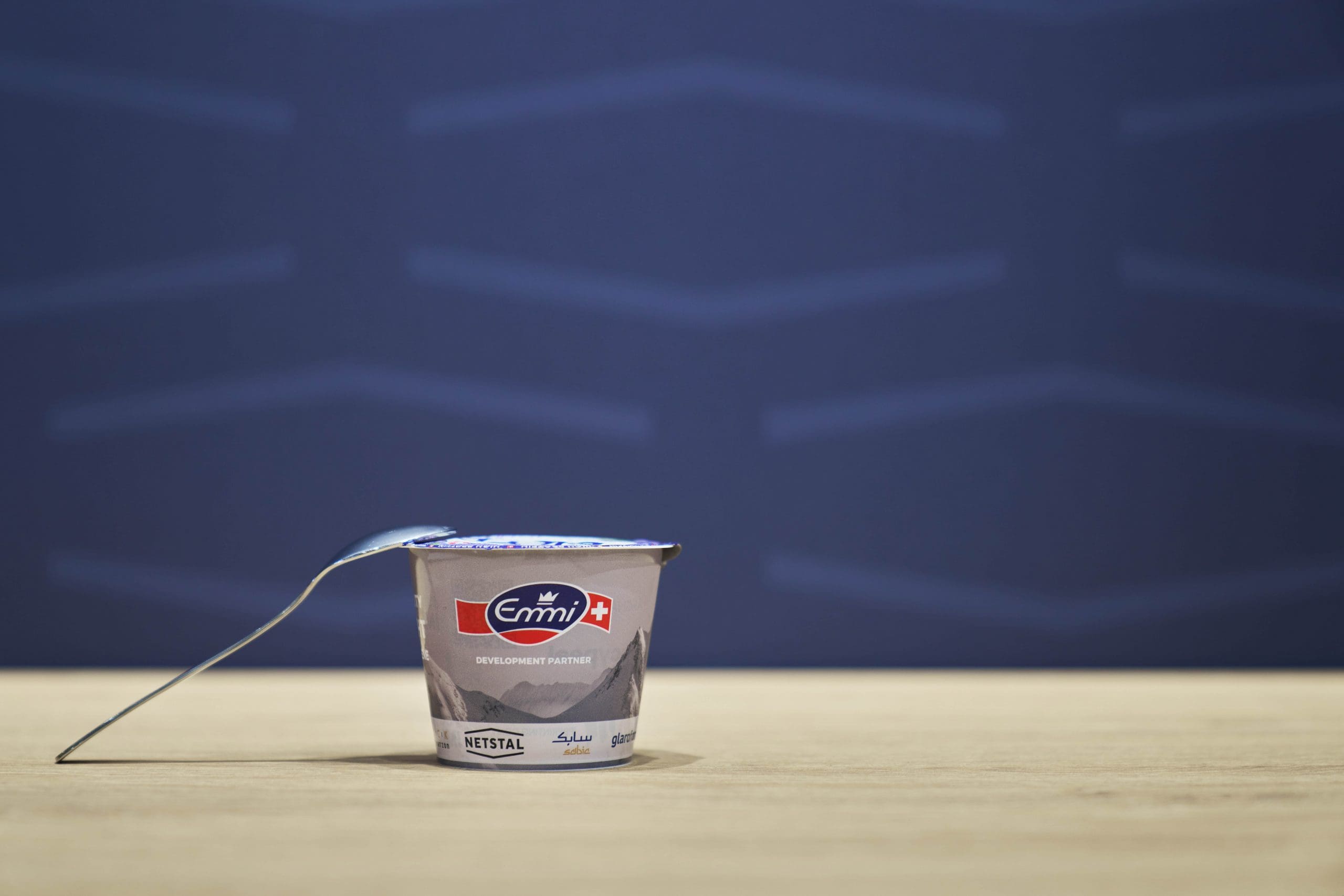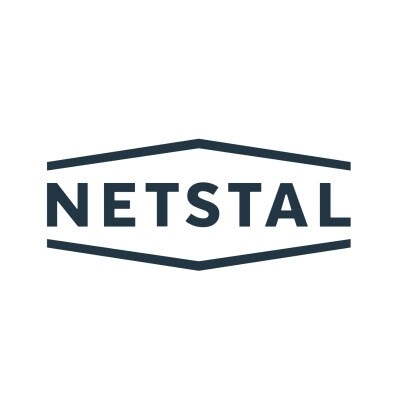Packaging highlight: 200 g ICM thin-wall cup
The Swiss Emmi dairy fills various products such as yogurt or skyr in 200 g pots, which are produced using conventional injection molding. When evaluating more cost-effective and sustainable alternatives, a cup produced using the injection compression molding (ICM) process came into play.
Even in direct comparison with a thermoformed cup with a cardboard sleeve, the Netstal solution offers numerous advantages.
Solution from Netstal:
The ICM application was realized in cooperation with several system partners. We presented it as a running application at Fakuma 2023. For this we adapted a hybrid Elion 1750 to the injection compression molding process. The ICM mold with 4 cavities comes from Glaroform. Beck Automation provided the IML handling system with integrated camera inspection. The laminated PP label from iPB detaches itself during the recycling process.
Industry partner Emmi filled pre-produced sample cups on its filling line shortly before Fakuma and delivered them to Friedrichshafen. On our exhibition booth we served our guests finest blueberry skyr filled in show cups. Tasty proof that our solution works perfectly in practice.
Results ICM compared to 200 g cups in standard injection molding:
- The cycle time is reduced by approx. 14 % compared to standard injection molding
- Plastic consumption falls by approx. 34%
- 27 % more parts per packaging unit
- 33 % less CO2 equivalents*
Results ICM vs. 200 g thermoforming cup with cardboard sleeve
- Plastic consumption is reduced by approx. 20 % (both cups without label)
- The labeled ICM cup is around 40 % lighter than the labeled thermoformed cup (5.96 g vs. 9.87 g)
- Around 22 % lower power consumption per kg of material throughput
- 150 % more parts per packaging unit
- 28 % less CO2 equivalents*
- One-step process: the finished labeled cup comes directly from the injection moulding machine
Conclusion:
With this application, we can prove that cost efficiency and sustainability go hand in hand in injection molding. The thin-walled ICM cup has a significantly better carbon footprint, even compared to the thermoformed cup with a cardboard sleeve.
Because it is made of 100% PP, it is completely recyclable. This has been certified with the top grade A+++.
Injection compression molding offers manufacturers of plastic packaging unique opportunities. You too can increase your efficiency and optimize the ecological footprint of your production with ICM.
Our experts will be happy to provide you with individual advice.
*Estimated carbon footprint for polymer, label, production in Germany (8000 h / year), transport distance 628 km



